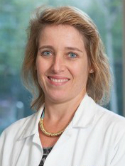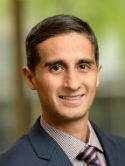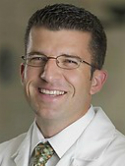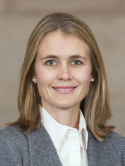Radiation Oncology AcaDemic Mentorship Program (ROADMAP) for junior faculty: One-year results of a prospective single institution initiative Journal Article
| Authors: | Lin, D.; Gomez, D. R.; Zhang, Y. H.; Gennarelli, R.; Efstathiou, J. A.; Barker, C. A.; Gelblum, D. Y.; Shah, M. K.; Liberman, L.; Hirsch, A. E.; Cahlon, O.; Gillespie, E. F. |
| Article Title: | Radiation Oncology AcaDemic Mentorship Program (ROADMAP) for junior faculty: One-year results of a prospective single institution initiative |
| Abstract: | Purpose: Although mentorship has been associated with promotion, job satisfaction, and retention, data are limited on the mentorship experience of clinical- versus research-track physicians as well as feasibility and relative priority of formal program components. Methods and Materials: Within a single-institution, multi-site, academic network, we implemented a Radiation Oncology AcaDemic Mentorship Program (ROADMAP) for junior faculty. Validated surveys assessing mentee satisfaction were distributed at baseline and 1 year. The statistical analysis included Wilcoxon rank sum and signed tests. Mentees assessed the likelihood to recommend each program component (10-point Likert-type scale), and means with standard error (SE) are reported. Results: Among 42 eligible junior faculty, 36 (86%) opted into the program. The median time since residency was 2.5 years (interquartile range, 1.75-5.25) on the clinical track (n = 12) and 3 years (interquartile range, 2.75-5.00) on the research track (n = 24). At baseline, research-track physicians reported higher satisfaction with mentoring than physicians on the clinical track (2.92 vs 2.16; P =.02). Among 32 physicians completing 1 year, overall satisfaction with mentoring increased compared with baseline (2.72 vs 3.87; P <.001), which persisted on subset analysis for both clinical- (2.16 vs 4.03; P <.001) and research-track physicians (2.99 vs 3.77; P =.005). At 1 year, 28 mentees (88%) opted to continue the program. Program components were rated 8.25 (SE, 0.37) for mentor–mentee pairings, 7.22 (SE, 0.39) for goal setting, 6.84 (SE, 0.47) for administrative support, 6.69 (SE, 0.44) for peer mentoring, and 6.53 (SE, 0.45) for steering committee oversight. Ratings of peer mentoring were not associated with track (P =.59) or years in practice (P =.29). Conclusions: Clinical-track physicians may be less satisfied with mentorship than research-track faculty. However, all junior faculty, regardless of track, appeared to benefit from formalizing dyadic mentor–mentee relationships, goal setting, and peer mentoring. Further work is needed to determine the role of mentorship in addressing physician burnout. © 2022 |
| Keywords: | clinical article; controlled study; radiotherapy; oncology; feasibility study; radiation oncology; multicenter study; clinical research; physician; satisfaction; job satisfaction; surveys; burnout; goal-setting; inter quartile ranges; methods and materials; human; article; mentoring; likert scale; mentor; prospectives; formal programs; peer-mentoring; program components; relative priorities; standard errors |
| Journal Title: | International Journal of Radiation Oncology, Biology, Physics |
| Volume: | 114 |
| Issue: | 1 |
| ISSN: | 0360-3016 |
| Publisher: | Elsevier Inc. |
| Date Published: | 2022-09-01 |
| Start Page: | 21 |
| End Page: | 29 |
| Language: | English |
| DOI: | 10.1016/j.ijrobp.2022.05.012 |
| PUBMED: | 35644504 |
| PROVIDER: | scopus |
| PMCID: | PMC9396442 |
| DOI/URL: | |
| Notes: | Article -- Export Date: 1 September 2022 -- Source: Scopus |
Altmetric
Citation Impact
BMJ Impact Analytics
MSK Authors
Related MSK Work













